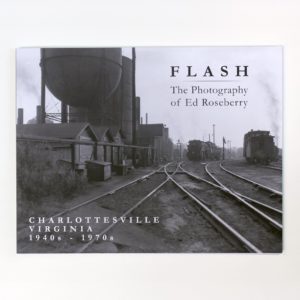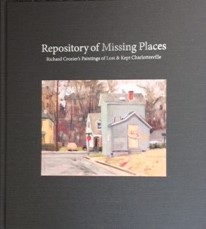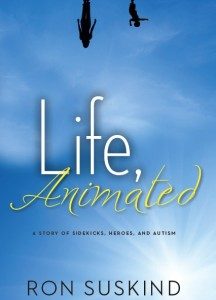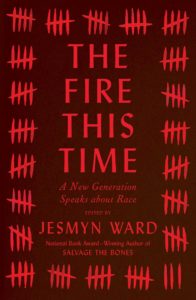UVA’s Recommended Holiday Reads: Part 1
Written by Patsy Goolsby, General Book Department Supervisor at the UVA Bookstore

The best part of my job at the University of Virginia Bookstore is serving as the Academical Village’s “caterer of food for thought.” Often I am the person called upon to sell pertinent books at UVA author appearances and lectures. In this way I can offer attendees the convenience of continuing their learning by purchasing books before they even leave the event. Having attended so many events and selling books after engaging and often moving lectures and readings I could easily discuss dozens of enthralling books by UVA faculty and alumni authors. Below I have picked four of the many beautiful and riveting recently-released books that belong on any winter reading list.
The UVA Bookstore has two lovely new picture books about Charlottesville, the perfect addition to any coffee table. Flash: The Photography of Ed Roseberry, Charlottesville Virginia 1940’s to 1970’s is a stunning collection of Roseberry’s black and white photographs edited by Steve Trumbull. It will be a treat for anyone who spent time in Charlottesville from the 40’s to the 70’s and anyone who has moved here recently. It covers the evolution of familiar landmarks, such as the intersection of Route 29 and Barracks Road and the area of West Main near the Lewis and Clark (and Sacagawea) statue.

The second picture book is Repository of Missing Places: Richard Crozier’s Paintings of Lost & Kept Charlottesville, edited by Deborah McLeod. Crozier’s paintings are of a more recent vintage, reminiscent of Edward Hopper’s work; the earliest dates from 1992. Many depict buildings that no longer exist, and several show the heavy equipment used during the demolition. The book includes essays about the history of the places Crozier painted. As McLeod says in her introduction, “Poetry of Place:” “The air-infused, painterly style of Crozier’s unintentional record keeping, as he records these vestiges of place, perfectly expresses a living history de-materializing before our eyes.”

Let me also describe two, among many, titles associated with events that particularly stand out in my memory of this year. Life, Animated: A Story of Sidekicks, Heroes, and Autism is by 1981 College of Arts and Science grad Ron Suskind. The story is a memoir of Owen, Suskind’s autistic son, learning to relate to the world by memorizing animated Disney movies. Suskind appeared at 1981’s 35th Reunions Weekend this past June and it was delightful to be a fly on the wall as he chatted with his classmates, signed their books and discussed autism, which many had first-hand experience with. Suskind also appeared during the Virginia Film Festival and there not only did Suskind discuss the book and movie, but the star of the documentary, Owen Suskind himself, signed copies. Owen’s story, as told by his father, is inspiring.
The other relevant title of 2016 is The Fire This Time: A New Generation Speaks about Race, as edited by author Jesmyn Ward. I worked as a book-seller at the launch of this book, hosted by the Institute for Advanced Studies in Culture (IASC). The Fire This Time is Ward’s response to re-reading James Baldwin’s The Fire Next Time “around a year after Treyvon Martin’s death, a year in which black person after black person died and none was held accountable.” Ward sought what she found on first reading Baldwin, when she “needed to know that someone else saw the myriad injustices of living while black in this country, that someone so sharp and gifted and human could acknowledge it all and speak on it again and again.”

Prompted by Baldwin, Ward solicited thinkers of this generation to speak to, and encourage, twenty-first century young people on “living while black.” At IASC’s launch, two contributors, Emily Raboteau and Garnette Cadogan, lead a thought-provoking public discussion that was moderated by UVA Associate Professor of English Maurice O. Wallace. Students of various races asked penetrating questions. I was greatly moved. It is terribly important that those of us who can easily, blindly, remain oblivious to the “myriad of injustices of living while black” attend to stories like the ones in this book. Raboteau, Cadogan and the other contributors each have vivid ways of revealing difficult realities that still need to be “[spoken] on again and again.”
All books mentioned in this post, and many more, are available at the UVA Bookstore. The Bookstore will also ship anywhere.
- Having a Drink With Your Donkey: The Absurd in Antiquity
- What Happens to UVA’s Recycling? A Behind the Scenes Look at Recycling, Composting, and Reuse on Grounds
- Finding Your Center: Using Values Clarification to Navigate Stress
- UVA Club of Atlanta: Virtual Pilates Class
- UVA Club of Fairfield/Westchester: Cavs Care - Food Pantry Donation Drive
- UVA Club of the Triangle: Hoo-liday Party
